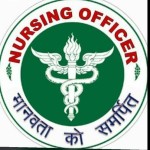Fluid Balance
Water comprises 60% of the body weight of an average adult. Total body water is divided functionally into the extracellular fluid (ECF 20% of body weight) and intracellular fluid (ICF - 40% of body weight) separated by the cell membrane.
Daily Normal Water Balance
Intake 2500 ml) Approx.
Water from beverages, 1200
Water from solid tool, 1000
Metabollc water from oxldation, 300
Total, 2500
Output (ml) 2500 ml
Urine, 1500
Losses from skin and lungs, 900
Faeces, 100
Total, 2500
Conditions arises from Water Imbalances
Dehydration: Loss of water/lack of water within cell/tissue.
Over-hydration: Water retention within the body.
Dehydration
Definition
Loss of water in cells and tissues of body is called dehydration. A human male body contains 60 percent water and 50 percent in case of female. Normally dehydration is
prevented by sensation of thirst. This mechanism may fail when sufficient water is not available and there is high loss of fluid from the body due to vomiting and diarrhea.
Causes
• Inadequate drinking of water
• Severe vomiting
• Severe diarrhoea
• Diaphoresis (excessive sweating)
• Sun stroke
• Severe hemorrhage
• Diabetes and diabetic coma
• Burn
• Cholera
Signs/Symptoms
• Thirst
• Sometimes impalpable pulse
• B.P. low
• Weight loss
• Muscle weakness
• Dry tongue
• Sunken eyes ball
• Decreased urnary output
• Blood urea increases
• Headache
• Restlessness
• Low skin integraty
• Cracked lips
• Deep and fast respiration.
Diagnostic Evaluation
• Presence of clinical manifestation.
• Blood investigation, e.g,
• Serum electrolytes, B.U.N. (Blood urea nitrogen).
Complications
• Confusion
• Coma or shock
• Oligouria.
Management
Treatment depends upon severity
1. Mild Dehydration:
Provide Oral Rehydration Therapy (ORT) Give ORS solution to patient.
ORS contain
Amount in gm
NaCl (Sodium chloride), 3.5 gm
NaHCO (Sodium bicarbonate), 2.5 gm
KCl (Potassium chloride), 1.5 gm
G6H12O6, (Glucose), 20 gm.
All contain dissolve in 1000 ml of water.
2. Severe Dehydration
• IV. therapy for severe dehydration (fluid and electrolyte)
• Blood transfusion if haemorrhage is there.
• Antidiarrheal treatment if diarrhoea.
Nursing Management
• Close observation
• Maintain personal hygiene
• Maintain fluid and electrolyte balance
• To provide rest and comfort
• To provide skin care
• Maintain nutritional level
• Provide psychological support
• Maintain activity level of patient
• Health education.



You must be logged in to post a comment.